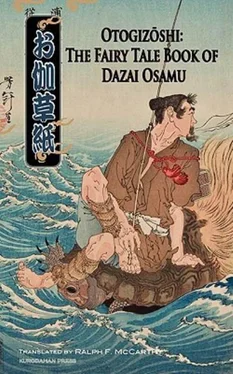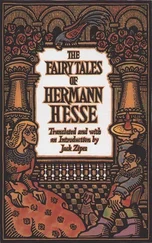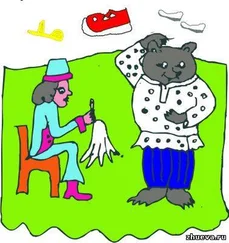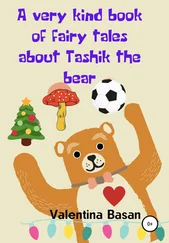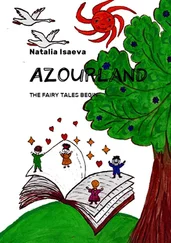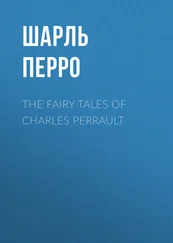He goes to Princess Oto and bids her farewell. Even this sudden departure of his is met with only a wordless smile of acquiescence. Nothing is unacceptable. He’s been given unlimited license from the very beginning of his stay until the very end. Princess Oto comes as far as the great stairway to see him off and silently hands him a seashell. It’s a tightly closed bivalve shell of five brilliant colors. This is, of course, the famous “jeweled box” that Urashima carries home with him.
Once you’ve climbed to the top, ’sno fun coming down. In a kind of daze he settles on the tortoise’s back again and leaves the palace behind. A strange sort of melancholy wells up in his breast. Ah ! he thinks, I forgot to say thank you! There’s nowhere in the world to match that place! I should have stayed forever! But he knows he’s a creature of the land. No matter how easy life may have been in the Dragon Palace, his own home, his old hometown, would forever be on his mind. Even when drinking that wonderful wine, his dreams were always of home.
It saddens him to admit it, but he knows he isn’t worthy of living a life of ease in that wonderful palace.
“Ngah! This won’t do! I feel so lonesome!” Urashima croaks with something very close to despair. “Tortoise! Let me hear some of those spirited wisecracks of yours! You haven’t said a word since we left.” Which is true. The tortoise has been silently flapping his fins and forging doggedly ahead. “Are you angry? Angry because I’m leaving so suddenly, like a guest who eats and runs?”
“Don’t be neurotic. This is what I hate about you landlubbers. You want to leave, you leave. How many times have I told you that, from the very beginning? Anything you want to do is fine.”
“You do seem rather down in the mouth, though.”
“Look who’s talking. As for me, well, I don’t mind welcoming people, but seeing them off just isn’t my cup of tea.”
“’Sno fun, eh?”
“’Sno time for bad puns. I’ll tell you, though, I never could get enthusiastic about these send-offs. All I can do is sigh, and anything I think of to say sounds so empty. I just want to get to goodbye and get it over with.”
“So you feel sad too?” Urashima is touched. “Well, allow me to express my gratitude for all you’ve done for me. I mean that.”
The tortoise doesn’t reply but jiggles his shell as if to brush off the sentiment and continues paddling onward and upward.
“I guess she’s back down there now amusing herself all alone.” A disconsolate sigh escapes Urashima’s lips. “She gave me this beautiful shell. It’s not something to eat, is it?”
The tortoise guffaws.
“It didn’t take you long down there to become a real pig, did it? No, the shell isn’t for eating. There may be something inside it. I’m not sure.”
Let us pause here for a moment. It would be easy to interpret the tortoise’s casual remark as a sinister appeal to human curiosity, made much in the spirit of the serpent of Eden. Perhaps, one thinks, it is simply the nature of cold-blooded creatures to pull such tricks. But no. To see the tortoise’s words in this way would be to do the good fellow a great disservice. Didn’t he himself once insist that he was “a genuine Japanese tortoise” and not to be compared with the serpent in the Garden? What reason have we to disbelieve him? Judging from his attitude toward Urashima up to this point, one must conclude that the tortoise scarcely seems the sort to whisper seductively while secretly plotting destruction. In fact, he seems quite the opposite of a deceptive schemer-he is, rather, as open as a carp streamer in the winds of May. In other words, he harbors no evil intentions. So I, at least, prefer to believe.
“But you might be better off not opening that shell,” he goes on. “It’s likely to contain, at the very least, the spirit energy of the Dragon Palace. Released on land, it could induce strange, mirage-like visions-or even madness. Then again, for all I know, the tides might rise in a surge and flood the earth. Let’s just say that I don’t think anything good could come of releasing whatever’s inside.”
There’s no nonsense in the tortoise’s voice, and Urashima is convinced of his sincerity.
“Perhaps you’re right. In any case, the noble atmosphere of the Dragon Palace could only be defiled by the coarse and brutish air of earth. It might even cause an explosion of some sort. I’ll store the shell at home, unopened, and treasure it as a family heirloom.”
They’ve now reached the surface of the sea. The sunlight is blindingly bright, but Urashima can see the beach of his old hometown. He can scarcely wait to run home, call his mother and father and sister and brother and all the servants together, and regale them with a detailed account of his visit to the Dragon Palace, filling them in on his newly acquired knowledge. Adventure is the power to believe. The customs of this world are just mean-spirited games of Monkey See, Monkey Do. Orthodoxy is merely another name for the commonplace. The ultimate refinement is the state of Divine Resignation, which is by no means to be confused with just giving up. There’s no caviling criticism in the Dragon Palace, only an eternal smile of acceptance. You’re given unlimited license. Do you understand? The guest is completely forgotten about! Ah, how could you understand? And if that stark realist of a brother of his displays even a hint of disbelief, all Urashima will have to do to squelch him is to thrust that beautiful souvenir from the palace in front of his nose.
He’s so worked up that as soon as they reach shore he leaps from the tortoise’s back and runs for home, forgetting even to bid his ride farewell, but…
What happened to the village?
What happened to the house?
Nothing to see but empty fields.
No people! No roads!
And the only sound was the wind in the pines.
That’s how the story goes. After much bewilderment and despair, Urashima decides to pry open the shell. But, again, I don’t feel that the tortoise bears any responsibility for that. This weakness of human beings-the psychology that makes us particularly curious about what’s inside something we’re told we mustn’t open-is also treated in Greek mythology, with the story of Pandora’s box. But Pandora was the victim of a revenge scheme cooked up by the gods. They announced a prohibition on opening the box because they craftily foresaw that her curosity would get the better of her. Our good tortoise, on the other hand, was simply being considerate when he warned Urashima. I think it’s safe to trust him on this, if only because he uttered his warning with such uncharacteristic earnestness. The tortoise was an honest fellow.
But, although I can confidently attest that the tortoise is not to blame, we’re left with another baffling question. When Urashima opens his gift, white smoke rises up from inside and he himself is instantly transformed into a three-hundred-year-old man. And that’s how the story ends: he shouldn’t have opened the shell after all-just look what happened to the poor fellow! I, however, am deeply suspicious of this ending. Does it not imply that Princess Oto’s gift was a device for exacting revenge or meting out punishment, just like Pandora’s box? Did the princess-even as she smiled in noble silence and granted unlimited license-secretly harbor a dark, sadistic side and a desire to punish Urashima for his selfish ways? Surely not, but why then would Princess Oto, the ultimate in refinement, give her guest such an incomprehensible gift?
From Pandora’s box, all the malign hobgoblins known to man-disease, fear, enmity, grief, suspicion, jealousy, wrath, hatred, execration, impatience, remorse, cravenness, avarice, sloth, violence, and what have you-arose in a swarm like flying ants and dispersed to lodge and thrive in every corner of the earth. But when Pandora hung her head, aghast at what she’d done, it’s said that she discovered, stuck to the bottom of the box, a tiny, starlike jewel. And written on the jewel was, of all things, the word hope. At this, it’s said, a hint of color returned to Pandora’s pallid cheeks. And ever since then, thanks to this “hope,” human beings have been able to summon the courage to endure the tribulations visited upon them by the aforementioned hobgoblins.
Читать дальше
